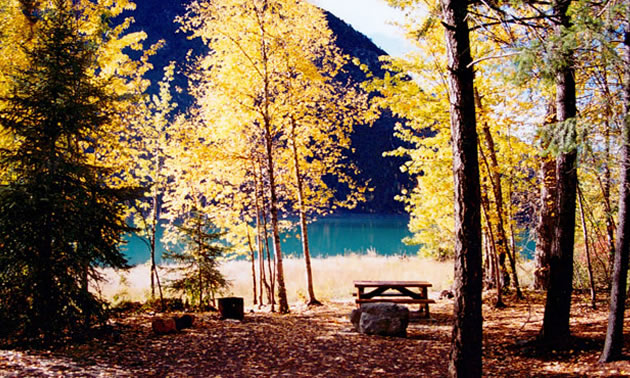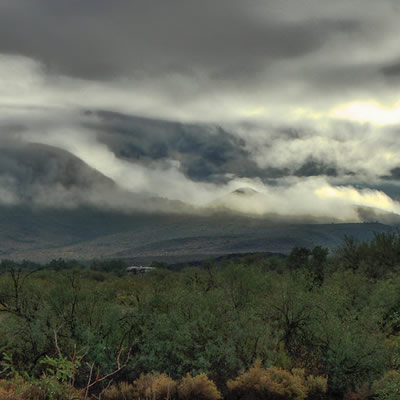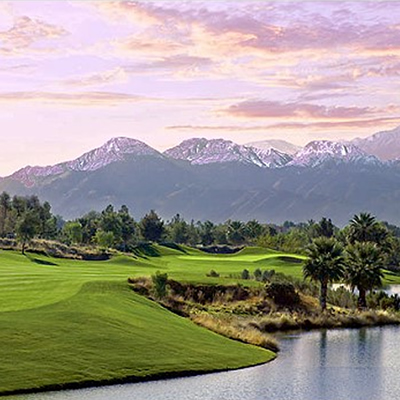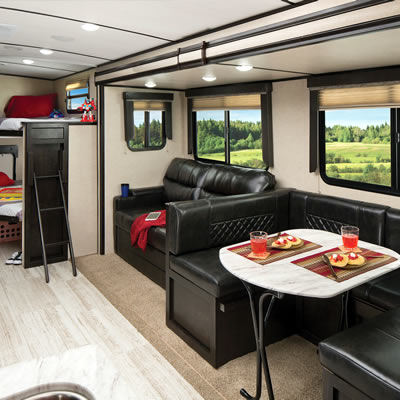BC Hydro recreation areas a rustic option to BC Parks

A favourite summer activity for British Columbians is getting outdoors and enjoying the wonders of the natural world that our province provides.
Some of the best areas to visit are the recreation areas that are managed by BC Hydro, which has planned, developed and operated public use areas throughout the province since 1972. They range from popular day-use areas such as Buntzen Lake, Puntledge River and Hayward Lake, to rustic, overnight campgrounds.
Cynthia Powell, a social resource specialist with BC Hydro's Public Use Management Areas department, says the recreation areas provide a service to the community by giving British Columbians an opportunity to enjoy the sites "in a way that protects the environment and still supports power generation".
They're also a great place to go when the crazily-popular BC Parks recreation areas and campgrounds fill up.
BC Hydro rec sites range from the Peace Canyon in northern B.C., to the Arrow Lakes region in the interior, to the Puntledge River corridor on Vancouver Island. Many are equipped with essentials such as bear-proof garbage bins, and can include picnic areas, hiking trails, beaches and boat launches, and campgrounds.
With camping season upon us, Cynthia has some suggestions for those planning on spending some nights in "super, natural" British Columbia.
Sleeping under the stars
B.C. has more than 200 campgrounds, and information on many of them can be found at Go Camping BC.
Reservations for BC Parks sites can be made online up to three months in advance. But if you've waited until too late and you don't want to take a chance on first-come, first-served sites at BC Parks, BC Hydro maintains free camping facilities at six recreation sites across the province:
- Alexander Mackenzie's Landing just outside the town of Mackenzie;
- Gun Creek (pictured here) and Seton Lake near Lillooet;
- Pend d'Oreille's Seven Mile Campground southeast of Trail;
- Jones Lake between Hope and Chilliwack;
- Strathcona Dam near Campbell River on Vancouver Island.
Rustic, with a few perks
There is no reservation system for BC Hydro sites, so camping spots are available on a first come, first served basis.
And while there is no fee to use the campgrounds, BC Hydro asks that people not camp for more than two weeks throughout the summer season. It's a way, says Cynthia, of making sure that everyone in B.C. has a chance to use the facilities.
Families are encouraged to use the campgrounds, and quiet times are enforced by wardens between the hours of 10 p.m. and 7 a.m.
Firewood is available at most sites for a nominal fee. Water availability varies from site to site. Where water is provided, it is regularly tested for purity. In the event of a fail, wells are shut down until acceptable purity returns.
All of the sites, says Cynthia, are minimal and rustic, by design. These campsites are free and cater to the public who doesn't insist on flush toilets and showers as part of their outdoor experience.
Other considerations
Some of the campgrounds are in the back country, where access via trucks or 4 by 4 vehicles is recommended. The roads into Gun Creek, Jones Lake, and Strathcona, for example, are gravel and can be quite rough with potholes.
The seasonal Hurley Road from Pemberton to Gun Creek is actually closed from late November through mid-May.
But the beauty and serenity of the surroundings at all of the campgrounds can make the travel worthwhile.
Cynthia was careful to note, though, that there is 24-hour construction currently underway at the Strathcona Dam to complete a seismic upgrade, so the campground won't be very quiet this summer. Any other closures or access restrictions are updated regularly.
Come for the camping, stay for the history
There's more to the BC Hydro campgrounds than just communing with nature, too. Most of the sites are close to towns that played a significant role in B.C.'s history, and are great places to visit.
There is a cairn built in recognition of explorer Alexander Mackenzie at the recreation area named after him, for example, and both the Gun Greek and Seton campsites are in the region of B.C. where gold and jade mining took place.
Nearby Lillooet is also worth visiting, says Cynthia, because the town had significant First Nations and Asian settlements, and is a historical and cultural treasure.
Respecting the environment
Cynthia says that in planning and maintaining the campgrounds, BC Hydro does its best to maintain as much of the natural landscape as possible. By providing areas for the public to use, she explains, the surrounding areas can be left alone.
"This helps to maintain the integrity of the ecosystem," she says, "so the flora and fauna of the region have a migratory and habitat continuum."
Visitors to the campgrounds are likewise expected to show the same respect. By staying within the areas that have been defined and designed by BC Hydro, campers can prevent erosion to the land and damage to the plants and animals.
The public use areas demonstrate BC Hydro's ability to manage land for the public, says Cynthia. "It's a way that BC Hydro gives back," she says.
Safety first
While the recreation areas are specially designed to keep users away from BC Hydro equipment and environmental hazards, visitors to the recreation areas must take care to exercise their own good judgment.
BC Hydro makes it a priority to provide safety information on how to keep safe around water, when having campfires and when hiking in the back country.
Blaine Kyllo is a Vancouver-based freelance writer and regular contributor to bchydro.com.








